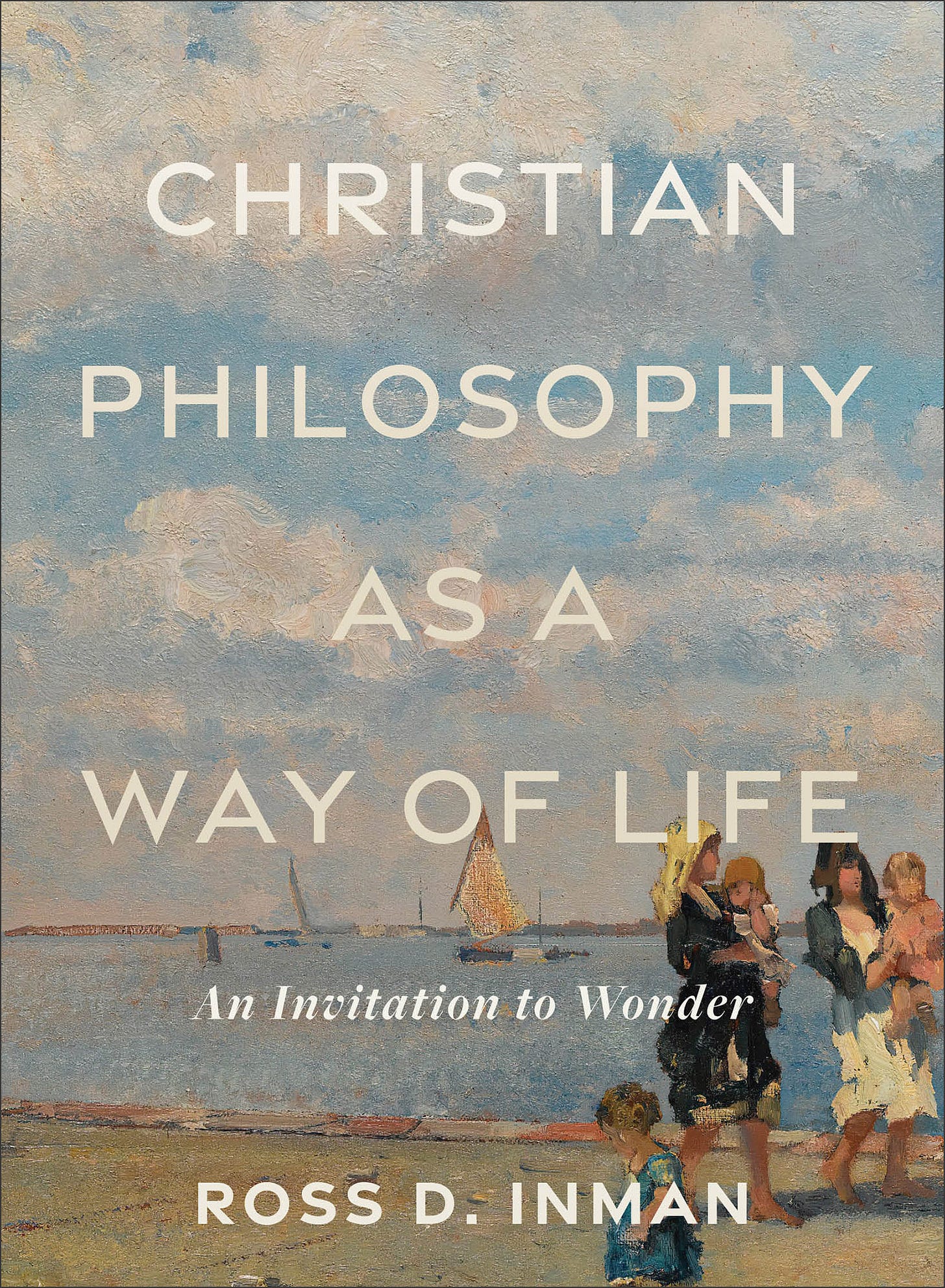When someone asks, “How can the study of philosophy possibly be of use to the Christian life, evangelism, and ministry?” I immediately begin to gently inquire what exactly they mean by each of these terms. This well-meant practicality question is often motivated by a view of the Christian life and of ministry that is held hostage by the value assumptions of the workaday world, a view in which intellectual maturity (1 Cor. 14:20; 2 Cor. 10:5) and becoming increasingly attuned to what is real, true, and good are optional leather trim rather than standard operating features of the Christian life and ministry.
I think a more helpful way forward is to fix our eyes and feed our imaginations on a vision of the Christian life, discipleship, and mission that organically arises from the biblical witness itself—one that has been widely employed throughout the Christian tradition.
The Christian life is one of pilgrimage from a place of restless spiritual exile to a homecoming of restful communion with God, and we are all somewhere along the way. An interactive and abundant life with the triune God this side of eternity is portrayed throughout Scripture as a journey along a “path of life” (Ps. 16:11) that is “straight” (Prov. 11:5), “level” (Isa. 26:7), “good” (Prov. 2:20), and “ancient” (Jer. 6:16). The book of Acts even describes some of the earliest travelers on this Christ-blazed path as followers of “the Way,” which indicates a way of life rather than merely a body of doctrinal teaching that one mentally affirms (Acts 9:1–2; 19:9, 23; 22:4; 24:14, 22).
Pilgrims on the Way of Christ are to continually “walk” along the path of life in a “manner worthy of the Lord” (Rom. 6:4; Eph. 2:10; 5:15–16; Col. 1:10; 4:5), which means (at least in part) that the everyday lives of wayfarers on this path should bear an increasing resemblance to the full and abundant life of the path’s original trailblazer, the triune God as revealed in the person of Christ (Luke 6:40). In fact, “Whoever says he abides in him ought to walk in the same way in which he walked” (1 John 2:6). In this way, the hearts, minds, and feet of those who sojourn along this path will become increasingly aligned with the true and the good . . . filled with abundant and life-giving fruit of the Holy Spirit (Jer. 17:7–8; Eph. 4:1–3) and “increasing in the knowledge of God” (Col. 1:10) and “walking in the truth” (2 John 4; 3 John 4).
Scripture identifies “light” as a defining mark of both the path of Christ and its traveling wayfarers. The idea of light (and darkness) in Scripture is like a complex jewel with many facets. For our purposes here, it is important to emphasize the moral and intellectual facets of what it means to “walk in the light” along the path of life. Because God himself is light (1 John 1:5), we ought to “walk in the light, as he is in the light” (1:7). As a child seeks to imitate the actions of his or her earthly father, so too “children of light” (Eph. 5:8) are to “be imitators of God, as beloved children” (5:1) for God is “the Father of lights, with whom there is no variation or shadow due to change” (James 1:17).
Scripture weds light and truth in intriguing ways (Pss. 43:3; 119:105; 2 Cor. 4:4–5; Eph. 5:8–10), so much so that walking in the light amounts to bearing witness to and practicing the truth (1 John 1:7–8; 2:8), while deviating from the path of life toward the “ways of darkness” (Prov. 2:13) amounts to walking in falsehood and illusion (2 Kings 17:15), “futility” of mind, and being “darkened” in understanding (Eph. 4:17–18). Indeed, “The way of the wicked is like deep darkness; they do not know over what they stumble” (Prov. 4:19; see also v. 18). Christians are beckoned to sojourn along the everlastingly good and true way, illumined by God’s marvelous light and truth (Ps. 43:3; 1 Pet. 2:9)—a way that is “like the light of dawn, which shines brighter and brighter until full day” (Prov. 4:18; see also v. 19; Rom. 13:12–13). In doing so, we travel a well-worn, ancient road by which we find “rest for [our] souls” (Jer. 6:16).
— Ross D. Inman (PhD, Trinity College Dublin) is associate professor of philosophy at Southeastern Baptist Theological Seminary in Wake Forest, North Carolina. He also teaches Great Books classes at the College at Southeastern and is the editor of Philosophia Christi. He has previously held research positions at the University of Notre Dame's Center for Philosophy of Religion and at Saint Louis University.
---
Excerpted from Christian Philosophy as a Way of Life: An Invitation to Wonder by Ross D. Inman (Baker Academic, 2023). Used by permission.
“Ross Inman has given us a wonder-filled book on the nature and value of living philosophically. Christian Philosophy as a Way of Life powerfully demonstrates the centrality of philosophy to a flourishing life under the banner of Christ. Inman expertly diagnoses our modern existential ailments and shows how a distinctly Christian philosophical way of life, rooted in the ways of Jesus and the church's teachings throughout the ages, provides the medicine we need. Read this book. Ponder it. And then enter into the rich history of philosophical thinking as you organize your life around the good that is God. This is essential reading for any Christian wanting to walk in the ways of Jesus.”
— Paul M. Gould, associate professor of philosophy of religion, director of the Master of Arts in Philosophy of Religion program, Palm Beach Atlantic University
“To be completely honest, Christian Philosophy as a Way of Life is one of the best (if not the best) introductions to philosophy I have ever read. I was taking notes all the way through! Inman presents philosophy as an immensely practical field with tremendous benefits for living a flourishing, healthy life. It is chock-full of new ideas and rich, life-giving help, all done in a conversational style. Wow, I love this book!”
— J. P. Moreland, Distinguished Professor of Philosophy, Talbot School of Theology, Biola University; author of A Simple Guide to Experiencing Miracles
Find Christian Philosophy as a Way of Life at Amazon, Baker Academic, and other major booksellers.
*sponsored post





I love what you’re after here. I will most certainly buy this book, thank you.